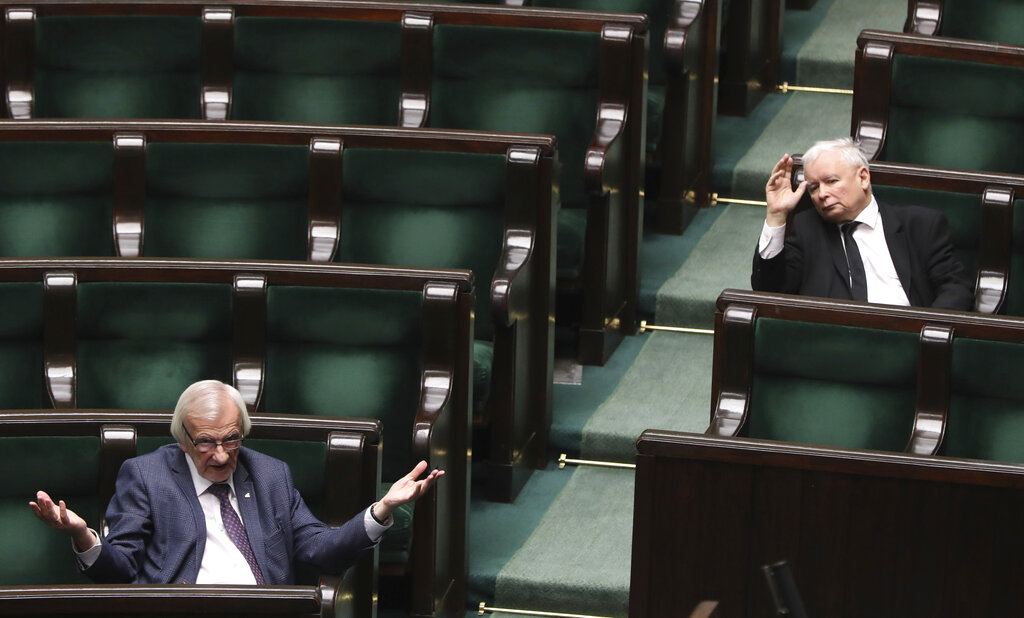Ryszard Terlecki, head of the ruling conservative Law and Justice (PiS) parliamentary caucus and deputy speaker of parliament, in an interview with conservative news outlet wPolityce.pl, admits that it is unlikely that his party will be able to form a government but that the new liberal-centrist coalition may also face difficulties.
He added that PiS will be a demanding opposition to the new ruling coalition of liberals, centrists and leftists “who have little in common apart from their hostility to PiS.”
Asked about his party’s assessment of the election results, in which PiS won the election but will not have a majority in parliament, Ryszard Terlecki said that his party will attempt to form a government but that would be a difficult task.
However, he also felt that the opposition parties will not find it easy to form a government either, since the only thing that really united them was their “hatred for PiS,” whereas now they will have to agree on a joint program and government.
He acknowledged that these parties had declared their intention to form an administration but the “devil will lie in the details,” and he did not rule out that in a struggle to preserve their identity, the smaller coalition partners might rebel against Donald Tusk’s attempt at domination.
He would not comment on whether PiS would attempt to woo individual MPs from different parties or a particular party into coalition. He hoped that the party’s third consecutive election victory would not merely be a statistical one of polling the most votes and getting the most seats.
Asked about whether his party had a plan to make it difficult for the new government to govern, Terlecki said that his party “would not be a soft opposition” but did not provide any details.
The senior PiS MP acknowledged that the referendum did not attain the required 50 percent turnout quorum to be valid, but he still felt it was a good result. He underlined that the pro-opposition members of the electoral precinct committees, who made voters ask for the referendum ballot papers, had broken the law and assisted the opposition in its boycott.
Terlecki was also asked if he expected the new government to carry out the threat to launch prosecutions against PiS government officials and replied that this was unlikely before the local government elections due in the spring of next year.





